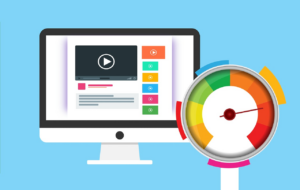

One of the hallmarks of a great web developer is the ability to hit that sweet spot between attractive layout design and adequate load speed optimization. After all, it’s a crucial component if you’re to keep potential customers on your webpage.
That said, being a web developer requires skills that most of us don’t possess, so it’s understandable for a website owner to struggle. If you’re happy with how your website looks, it may well be falling short of performance expectations — and that’s troubling given that nearly half of us won’t wait longer than 3 seconds for a shopping site to load up.
That’s just one of the big reasons why it’s vital for your site to load quickly. Below, we’ll delve more deeply into why having a speedy site can’t be anything less than a priority. Here we go.
First Impressions Are Crucial
As noted, our attention spans are minuscule when it comes to how long we’re willing to wait for a page to load. This fact becomes even more pertinent when you consider that your business has only 7 seconds to make a positive first impression. What are you going to do with that time? What does your website look like within the first few seconds?
When you’re setting up your first website, it’s tempting to load it up with high-res images and stack the UI with special effects and animations. After all, you want it to look slick and professional — but those additions come at a cost, holding back the performance and potentially turning your site into a sluggish mess. The foundation needs to be usability achieved through a combination of fast load speed and functional UI design.
Regardless of your site’s primary purpose (be it to sell, inform, or entertain), your audience will lose interest fast if your load times don’t match their expectations. And when that interest fades, it won’t come back. It’ll be replaced by interest in rival sites that meet or exceed those expectations. Can you really afford to let that happen?
If you can do this, your hard-earned traffic won’t go to waste. Leads will be impressed by your website and act upon that by sticking around and becoming positively inclined towards your brand. Start as you mean to go on.
Speed Affects Your Search Rankings
Whether you’re an SEO whizz-kid or you’re less familiar with how search engines dictate rankings (you can learn more here, so take a look), upping your page speed is a simple and effective way to get your website seen more frequently. Improving performance will help your page appear higher up in Google’s results pages (other search engines are available, though perhaps not consequential).
[Editor’s note: Google’s recent Page Experience algorithm update makes your load speed even more important.]
How can you fix this, then? One of the best ways to give your site a quick boost is to take a look at your hosting provider. If it’s been a while since you set up your page, it may be worth investing in an upgrade.
If you’re not looking for the fastest WordPress hosting, or even the most secure, you can find something less complicated. It’s important to do the research to find something that suits your exact needs. PC Magazine has a good roundup of current options that can give you an idea of the pros and cons of each provider, helping you make the right choice for your eCommerce site. However, it’s important to do your research! Use a comparison site to weigh-up the pros and cons of each provider to ensure you make the right choice.
Faster Load Speed Means Higher Conversion Rates
Run an eCommerce store? Ensuring your website loads quickly should be one of your highest priorities. A study from Google found that a speed increase of just 0.1 seconds can boost the number of shoppers adding items to their baskets by more than 9%. Staggeringly, a 100-millisecond delay can result in a 7% decrease in conversions. Take a look at these conversion rates based on load times sourced from recent research:
|
Page Load Time (in seconds) |
Conversion Rate |
|
2.4 |
1.9% |
|
3.3 |
1.5% |
|
4.2 |
1% |
|
5.7+ |
0.6% |
In addition to following the aforementioned steps, you should keep an eye on your image sizes. Using image compression plugins (or sites such as TinyPNG or Squoosh) can help you avoid using more space than you need to, cutting back your required server resources and giving your website visitors better experiences.
If you’re using WordPress, a free plugin like W3 Total Cache can also help you to cache your web pages. This is one of the best ways to speed up your website, as caching stores copies of all the bulky files on your site. This reduces the load on the host’s servers when a user loads your page, ensuring that load times are minimal. [Editor’s note: another one we like is WP Rocket.]
Website load speed matters — hopefully we’ve been able to convince you of that! Find that balance between great design and optimized content, and we’re sure you’ll have no trouble keeping the attention of any visitors that come your way.